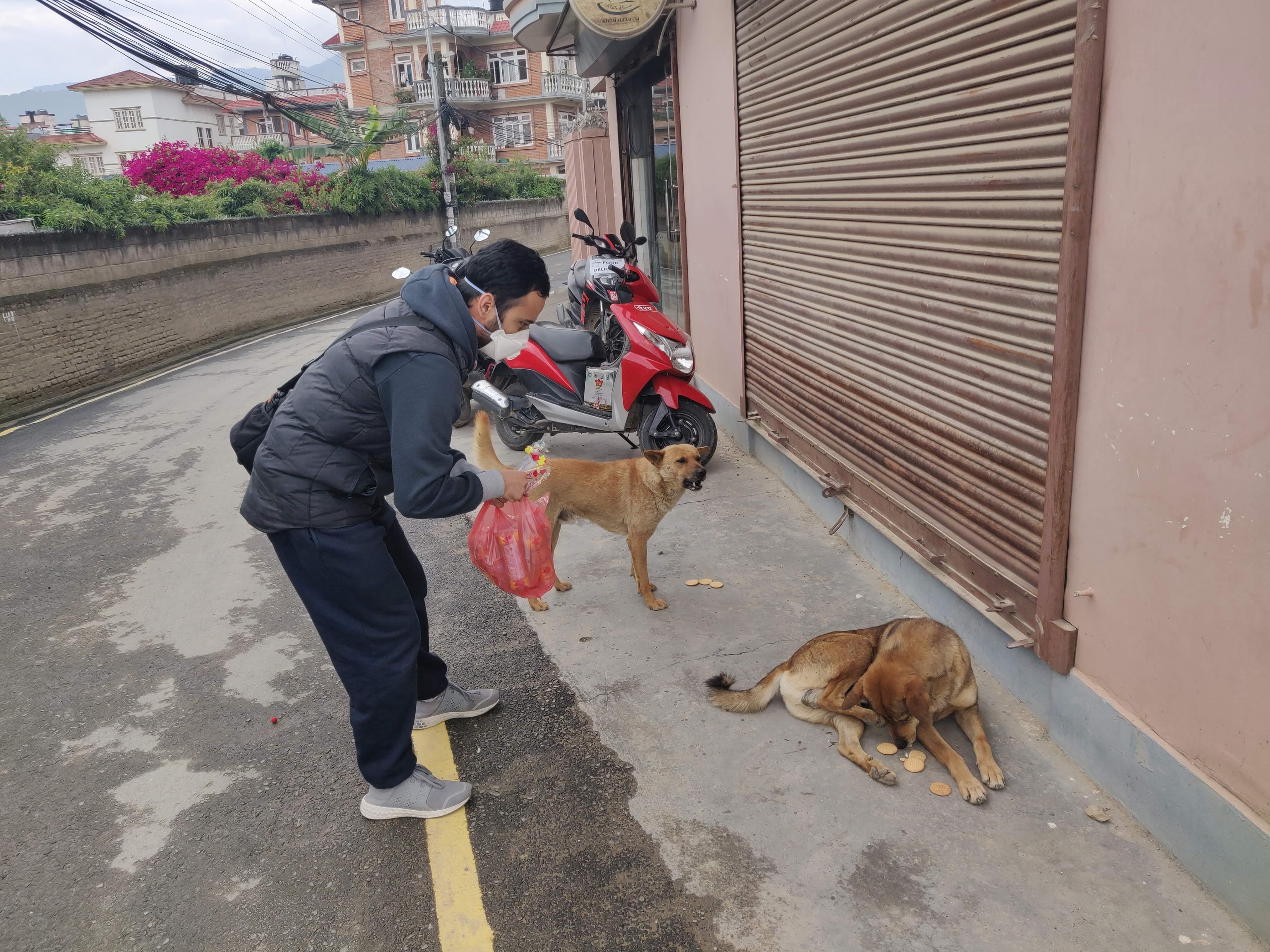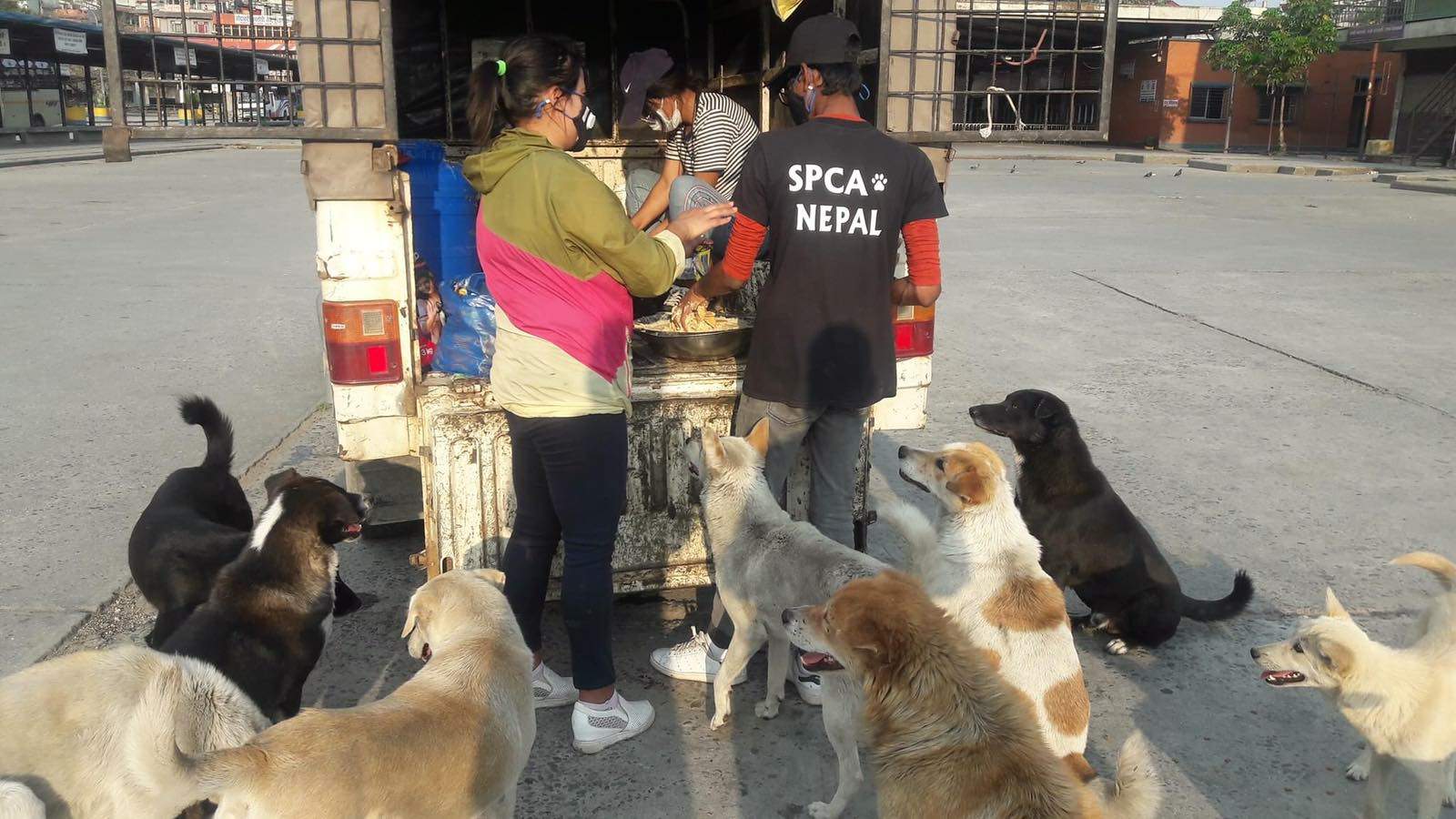Condition of stray dogs ‘critical’
- Locals as well as vets making efforts to make sure they are fed
Kathmandu
On April 11, a white dog around Sukukulan in Bhaktapur was attacked by a pack of dogs. One of the residents of the area Purneswori Duwal, who provided shelter to the injured dog for a night after the attack, said, “On April 12, we requested garbage collectors from our municipality for the dog’s treatment but they said the medicines were over. We feared being infected by other diseases from the injured dog while feeding her. But luckily the dog started recovering on her own after two days.”
A day after the attack, the same pack of dogs attacked Rajeswori Koju’s (name changed on request) black goat. “I usually find this pack of dog at the junction of Jhaukhel road. I thought their earlier attack was normal. But now it seems they starting to turn feral because of hunger. They might have attacked my goat because of this.”

He said, “We first give them cooked veg food mixed with milk, carrot, lentils and rice. If they don’t eat that, we give them meat and rice. We are coordinating with vegetable shops at different places as well as butchers. Sometimes, local people also donate food.”
On a daily basis, round five SPCA volunteers from different places bring three kilograms each of different food items and mix them and cook at SPCA office in Hattigaunda, and serve them to the stray dogs.
But Dr Rajbanshi added, “We cannot reach all places. If only each community fed the dogs, no animal would remain hungry in Kathmandu. But we have to be safe and cautious too while feeding them as the hungry animals can bite.”
Local level care
Manu Mitra, a joint programme of Kathmandu Metropolitan City, Jane Goodall Institute and Humane Society Institution, has also been helping in feeding urban dogs of all 32 wards of KMC through their local volunteers appointed as animal management assistants (AMAs). Manu Mitra has been suggesting AMAs to encourage community members to feed dogs in their areas.
“We are linking community members with respective wards to help community dogs,” said Sangita Sapkota, Manu Mitra’s programme coordinator adding, “The last annual vaccination of 2019 is valid till July 2020. We have completed sterilisation of female dogs of all wards. After lockdown, we’ll continue regular six-month dog survey.”
A version of this article appears in e-paper on April 25, 2020, of The Himalayan Times.






